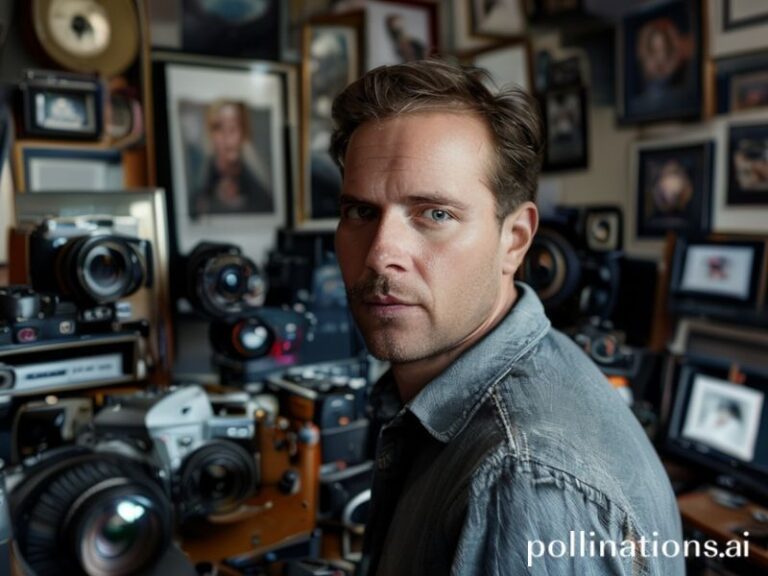Duchess of Debt: How Sarah Ferguson Became the World’s Most Relatable Royal Trainwreck
Sarah Ferguson, Duchess of York, has spent four decades proving that the British monarchy is less a venerable institution and more an open-air reality show where the cameras never blink and the script is written by the tabloids. From the moment she married Prince Andrew in 1986—thereby acquiring a title and, more importantly, a lifetime subscription to public ridicule—Fergie has been the Windsor family’s designated cautionary tale: the red-haired reminder that fairy-tale endings are strictly for the tourists.
Globally, the Duchess functions as a geopolitical Rorschach test. In the United States, she is the plucky divorcée who hawked Weight Watchers and children’s books with equal shamelessness, proof that anyone can monetise a royal connection if they hustle hard enough. In continental Europe, she is a Brexit-before-Brexit, the loud Brit who crashed the party, spilled red wine on the carpet, and then tried to sell the stain as modern art. In the Commonwealth, she is the ghost at the feast, a living reminder that imperial glamour curdles fast when exposed to sunlight, humidity, and overdue credit-card bills.
Ferguson’s latest act—touring the talk-show circuit to promote her new novel and, incidentally, her ex-husband’s excruciating attempt at reputational CPR—comes at a curious inflection point. The planet is on fire, democracies are flirting with autocracy, and the British royal family is busy arguing over who gets the Netflix rights to their dysfunction. Into this maelstrom strides Sarah, armed with a ghost-written thriller, a podcast about “authenticity,” and the unshakeable conviction that personal redemption can be denominated in hardcover sales. It’s a performance so brazen it would make a Russian oligarch blush.
The Duchess’s international significance lies not in what she does, but in what she reveals. Her career is a masterclass in post-imperial entrepreneurship: turn scandal into content, content into cash, cash into slightly more respectable scandal. It’s the same algorithm that powers Silicon Valley start-ups, Nigerian influencer empires, and Korean pop stardom. Strip away the tiara and the curtsy, and Sarah Ferguson is simply an early adopter of the global gig economy—except her gig happens to involve castles and corgis.
Consider the optics from Beijing: a former royal trading on proximity to power she no longer possesses, monetising nostalgia for an empire China is busily replacing with undersea cables and Belt-and-Road concrete. To the Politburo, Fergie must look like a medieval troubadour still singing for coins outside a shuttered palace—quaint, harmless, and faintly instructive about the perils of letting aristocrats near the treasury. Meanwhile, in Buenos Aires, she is the comic subplot to the main drama of the Malvinas, proof that Britain’s aristocracy is too busy self-immolating to hold onto anything as vulgar as real estate.
Of course, the Duchess has done humanitarian work—teacup diplomacy for the UN, literacy campaigns, the usual portfolio of duchess-as-brand-extension. But even her philanthropy carries the faint whiff of imperial aftershave: the assumption that Africa needs saving by a woman whose chief talent is turning personal embarrassment into prime-time narrative. One watches her cut a ribbon at a Kenyan girls’ school and wonders whether the students see a benefactor or merely another tourist with better luggage.
As the planet debates reparations, climate reparations, and the ethics of inherited wealth, Sarah Ferguson remains the monarchy’s unsolicited case study: a walking, talking argument for abolition dressed in pastel couture. She is the ghost in the imperial machine, rattling her jewellery and reminding us that the house of Windsor is less a family than a multinational corporation whose chief product is its own mythology—now available in paperback, audiobook, and limited-edition NFT.
In the end, the Duchess of York offers the world a comforting parable: no matter how high you climb, gravity—and the gossip columns—will eventually have their say. She is living proof that the empire struck back, missed, and ended up on QVC flogging commemorative plates. And somehow, that feels exactly right for 2024.







